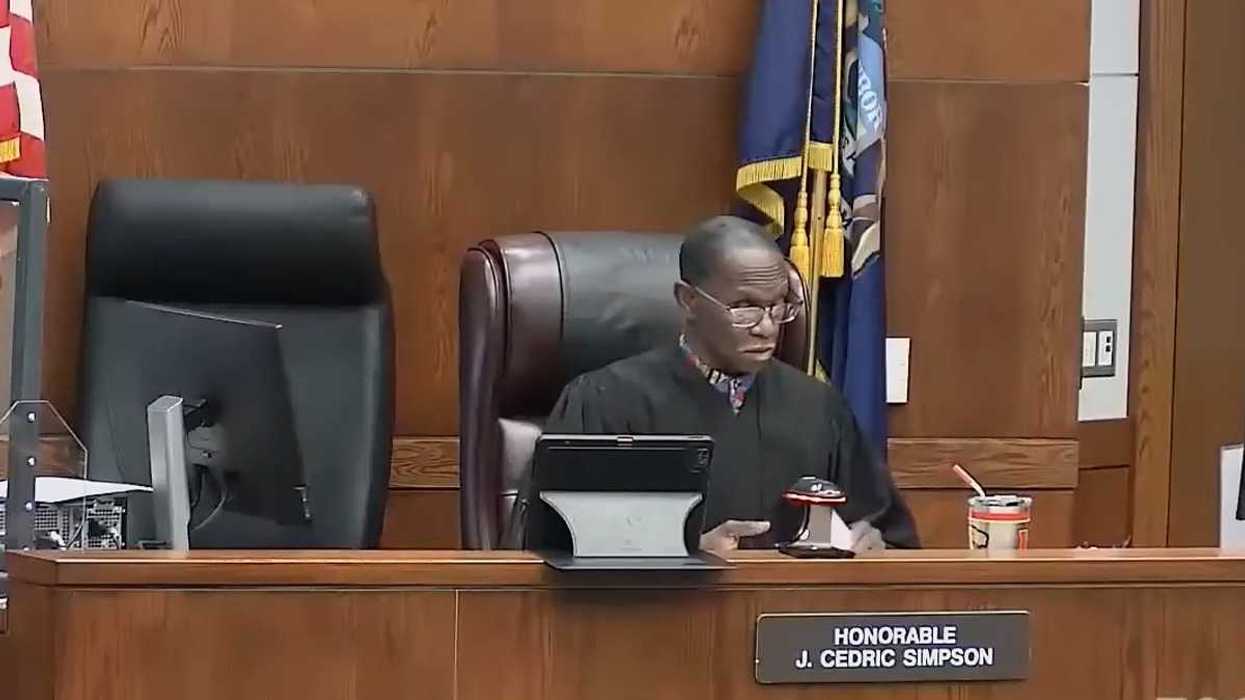David Bowie built his entire career around the concept of reinvention—his early baroque-pop sounds nothing like the brash glam of his Ziggy Stardust days or the experimental art-rock of the Berlin era. It makes total sense then that, during a 1997 episode of Late Night With Conan O’Brien, he delivered one of his most incredible live performances by radically transforming one of his own songs.
Appearing as a duo with longtime guitarist and collaborator Reeves Gabrels, Bowie stripped his recent single "Dead Man Walking" down to the studs. He removed all of the techno-rock chaos from the original recording (which appears on his album Earthling), leaving only a pair of acoustic guitars and a chilling lead vocal. The two versions hardly resemble each other, but that only makes the live version feel more special.
- YouTubewww.youtube.com
O’Brien seemed to agree back in 2016, paying tribute to Bowie during an episode of Conan following the musician’s death. "Of course, he was just a phenomenal musician, one of the greats of all time," he said during the show’s final segment. "So we’d like to show you a particularly memorable performance he gave on our show back in 1997."
In the clip, the guitars meld into a rich jangle, with Bowie strumming along on a 12-string as Gabrels adds an eerie atmosphere through harmonic bends and counter-melodies. The song itself feels even more alive in this setting, particularly during the chord change leading into the chorus. "As far as I'm concerned, this is the definitive version of this song," one fan wrote in the YouTube comments. "Unbelievable how good that wildly textured song sounded when he stripped it completely down like that," added another. "His music always had such great composition, he could play the songs a dozen different ways and they would still be great."
- YouTubewww.youtube.com
"Dead Man Walking," the third single from Earthling, has an interesting backstory, with the song’s main riff dating back to a '60s encounter between Bowie and future Led Zeppelin guitarist Jimmy Page. "When I was a baby, I did a rock session with one of the bands, one of the millions of bands that I had in the ’60s—it was the Manish Boys, that’s what it was," Bowie told BBC Radio 1 in 1997. "The session guitar player doing the solo was this young kid who’d just come out of art school and was already a top session man, Jimmy Page. And he just got a fuzz box and he used that for the solo. He was wildly excited about it and he was quite generous that day and he said, ‘Look, I’ve got this riff, but I’m not using it for anything, so why don’t you learn it and see if you can do anything with it?’ So I had his riff, and I’ve used it ever since! [Laughs]. It’s never let me down." (As Bowie notes, he also used a variation of that riff for his 1970 song "The Supermen.")
O’Brien also paid tribute to Bowie’s sharp sense of humor during that Conan episode, airing a highlight reel of his funniest moments. One of the best is from the '90s, when the host praised Bowie for having "the coolest hair in rock and roll." The singer pointed to an audience member and cracked, "He doesn’t think so, the guy there. [Laughs.] It’s because he has no hair."
- YouTubewww.youtube.com


















 Honorable J. Cedric Simpson at work in the courtroom.Image from
Honorable J. Cedric Simpson at work in the courtroom.Image from  A close up of Judge Simpson.Image from
A close up of Judge Simpson.Image from 
 Siblings engaging in a pillow fightCanva
Siblings engaging in a pillow fightCanva

 Revenge can feel easier than forgiveness, which often brings sadness or anxiety.
Revenge can feel easier than forgiveness, which often brings sadness or anxiety. 
 Created with
Created with  Where to turn off autoplay in your account on Facebook’s website.Screen capture by The Conversation,
Where to turn off autoplay in your account on Facebook’s website.Screen capture by The Conversation, 
 A young teen cries while listening to music via
A young teen cries while listening to music via 
 A young couple waits in line at a coffee shopCanva
A young couple waits in line at a coffee shopCanva Gif of Eddie Murphy telling you to think
Gif of Eddie Murphy telling you to think